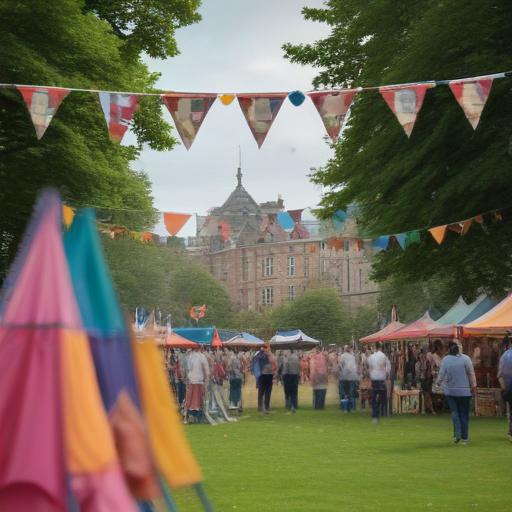The 78th Edinburgh International Festival (EIF) is set to launch in just a month, filling the city with performances across various venues from August 1 to August 24, 2025. Since its inception in 1947, the EIF has grown to become a beacon of outstanding theater, opera, music, and dance, drawing audiences from all over the globe to the heart of Scotland’s capital.
The festival not only showcases world-class artistry but also has deep roots in the community and trade union movements. Historically, the Edinburgh Trades Union Council has been represented on the EIF board, emphasizing a commitment to uniting communities through arts and culture. This year, efforts continue to broaden access and inclusivity, following challenges faced during the pandemic and a growing recognition of economic disparities within the creative sector.
This year’s programming includes festive family events, such as a free “Big Singalong” led by renowned composer Dougie Maclean, which promises to enliven the city center. The opening weekend will also feature a ceilidh and a family concert at the Usher Hall, inviting significant participation from families and children across Edinburgh. Last year, for instance, the Philharmonia Orchestra delighted a full house in a concert designed for young audiences, featuring engaging works like the “Carnival of Animals” and “Flight of the Bumble Bee,” with live sign language interpretation for those with hearing difficulties.
The EIF is keenly evaluating its community partnerships aimed at enhancing the festival experience for a wider audience. For example, a collaboration with the Broomhouse Hub allowed local schools to engage with the orchestra’s work through a virtual reality experience. This innovative approach is a testament to the EIF’s dedication to accessibility, which has seen the introduction of various support measures for D/deaf, disabled, or neurodivergent attendees.
Furthermore, the festival is attentive to the concerns of freelance artists and workers within the creative industry amid ongoing challenges faced since the pandemic. It has recognized the potential for growth and engagement with young audiences through initiatives like the Young Musicians Pass, while also offering affordable ticket pricing to ensure that all community members can partake in the cultural experience.
As the EIF approaches its 80th anniversary in 2027, the intersection of arts and labor movements remains relevant, echoing historical struggles for inclusivity and social equity. Ann Henderson, who has served on the EIF board, emphasized that the festival is for all, including the trade unions, which represent a significant segment of Scotland’s civic society.
Looking forward, the EIF promises to foster a vibrant and inclusive environment for all attendees, enriching Scotland’s cultural tapestry and enhancing community ties through the power of the arts. The festival not only serves as a platform for creativity but also as a space for reflection and hope for a future where communities can thrive together.
